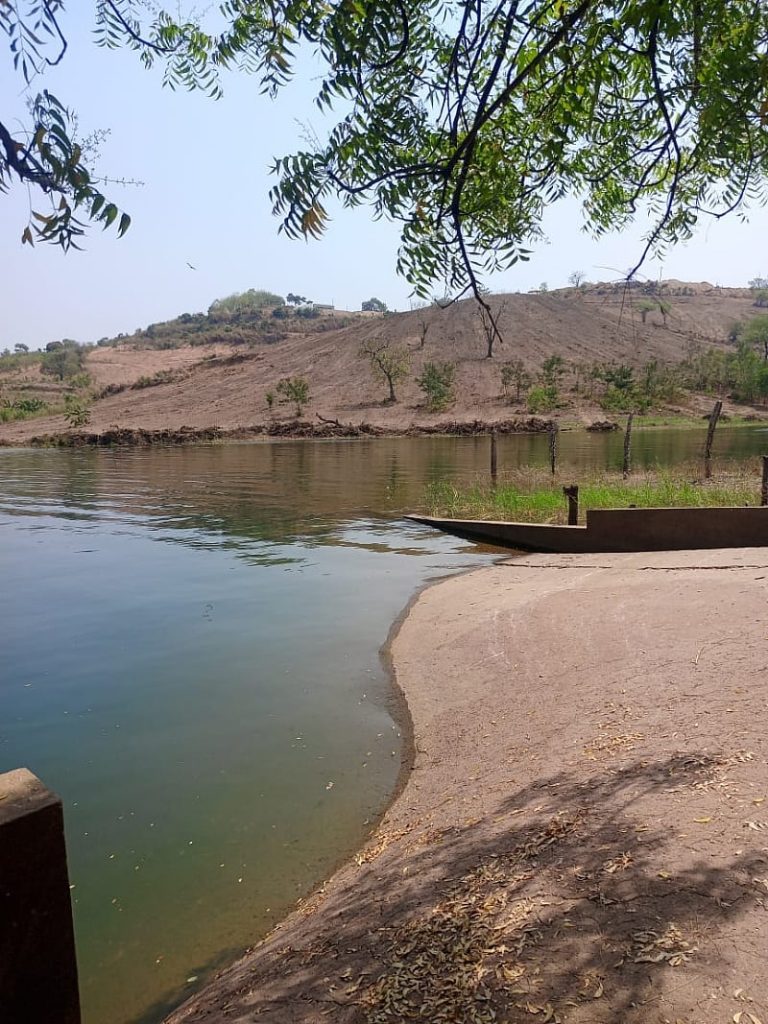The Ghana Water Company Limited (GWCL) has discovered unauthorized construction activities within the buffer zone of the Kpeve Treatment Plant, posing a significant threat to the water supply of Ho and its surrounding areas. The construction, undertaken by a private developer, BSK City, involves grading activities on a hill adjacent to the plant’s intake, resulting in the removal of topsoil and subsequent filling of a portion of the intake. This development has raised serious concerns about the plant’s operational capacity and the potential for environmental damage.
The immediate consequence of BSK City’s actions is a reduction in the volume of water at the intake. This diminished capacity exacerbates the existing challenges faced by GWCL, which has been struggling with the frequent breakdown of an aging pumping machine at the headworks. With only one functioning pump from the original three installed in 1993, the water supply to Ho has already been precarious. The reduction in intake volume further restricts the ability of the GWCL to meet the demands of its customers.
The long-term environmental impact of the construction activities is even more alarming. The removal of topsoil from the hill has left the area bare, increasing the risk of soil erosion and siltation. During rainfall, the runoff from the exposed soil carries large amounts of sediment into the intake, significantly increasing turbidity levels. The Kpeve Treatment Plant, lacking the necessary equipment such as coagulant dosing systems, clarifiers, or sedimentation tanks, is unable to treat water with high turbidity. Consequently, the plant is forced to shut down during periods of heavy rainfall, further disrupting the water supply to Ho.
Beyond the immediate impact on water volume and turbidity, the development also poses a substantial pollution risk. The construction of resorts or human settlements near the intake increases the likelihood of waste discharge directly into the water source. This contamination could have severe consequences for public health and the environment. The proximity of human activity to the intake makes it vulnerable to various pollutants, including sewage, chemicals, and other harmful substances.
Recognizing the gravity of the situation, GWCL has taken steps to address the issue. They have communicated their concerns to various stakeholders, including the Environmental Protection Agency, the Water Resources Commission, the Regional House of Chiefs, and the South Dayi Assembly. Furthermore, GWCL has appealed to the National and Regional Security Councils to intervene and halt BSK City’s activities. They have urged the Security Councils to compel the developer to implement remedial measures, specifically planting grass to cover the graded area and prevent further soil erosion and siltation. This vegetation would help stabilize the soil, reducing runoff and the subsequent turbidity issues during rainfall.
The discovery of BSK City’s unauthorized activities occurred during a site visit by officials from the Public Utilities Regulatory Commission (PURC). The PURC team, which included representatives from Accra and the Volta Region, was initially investigating the water shortage situation in Ho and the challenges faced by GWCL with the intake pumps. During their fact-finding mission to the Kpeve Treatment Plant, they observed the ongoing construction activities and the potential environmental damage they posed. Despite attempts by the Ghana News Agency (GNA) to contact BSK City for clarification and comment, the private developer has remained unresponsive, failing to answer phone calls or respond to text messages. This lack of communication raises further concerns about the developer’s intentions and their commitment to mitigating the environmental impact of their actions. The silence also underscores the urgency of intervention by the relevant authorities to prevent further damage and ensure the long-term sustainability of the water supply to Ho and its surrounding communities.


